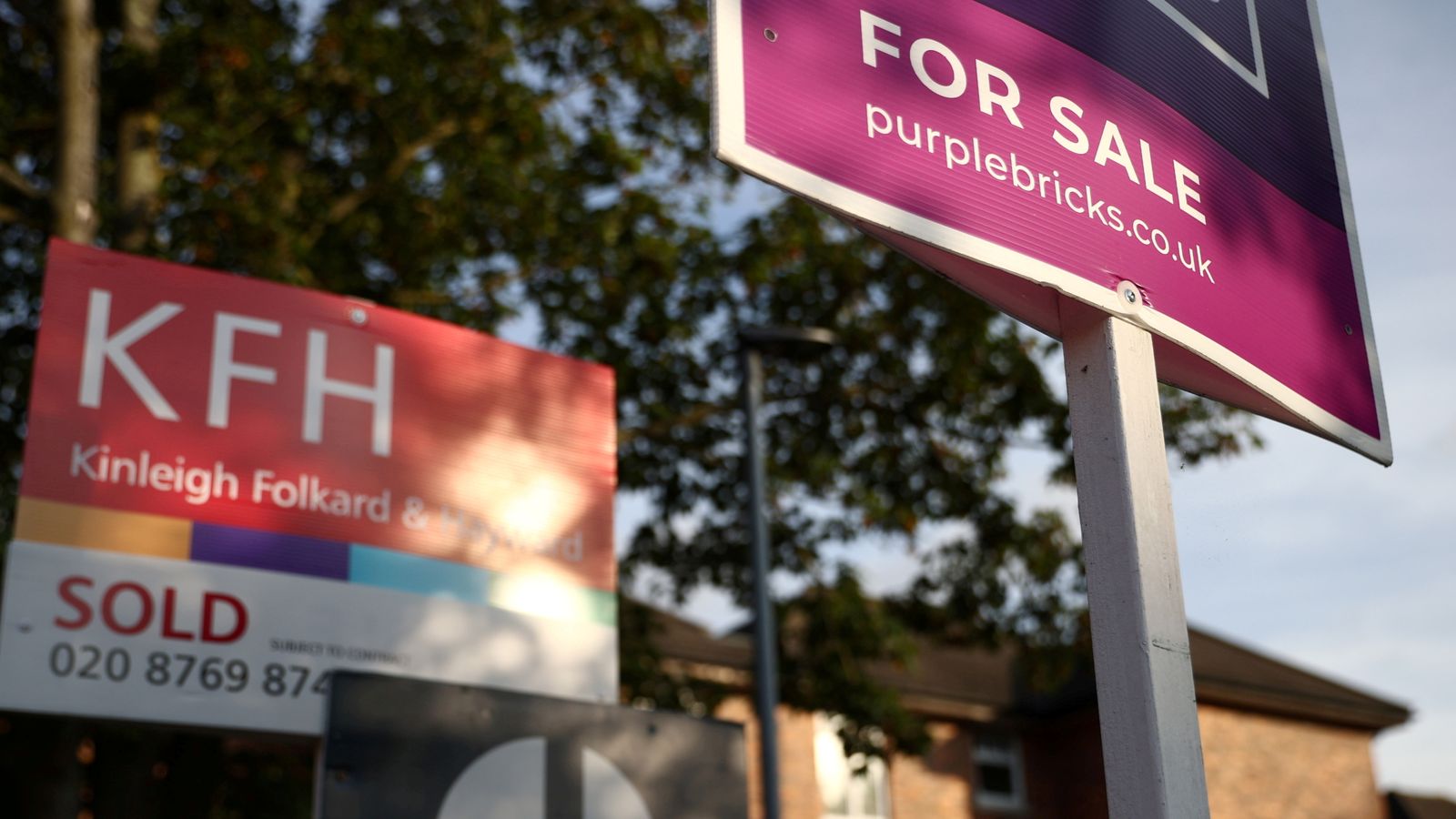Mortgage borrowing fell by more than 36% in April when compared with the previous month, in yet another signal that the red-hot housing market in the UK is starting to lose momentum amid rising inflation and a cost of living crisis.
The Bank of England said on Tuesday that net mortgage borrowing decreased to £4.1bn in April, down from £6.4bn in March, a fall of £2.3bn, while mortgage approvals for house purchases also dropped to 66,000 in April from 69,500 in March.
Both measures are now below their 12-month pre-pandemic averages – although the housing market remains much busier than it was pre-COVID 19.
“Activity among purchasers is ebbing as the cost of living squeeze shrinks the pool of buyers,” said Hina Bhudia, partner at Knight Frank Finance. “Rates on certain products have doubled in the past twelve months and there is a real sense of urgency among many borrowers who sense they must act soon or reassess what they can afford.”
The demand for refinancing existing mortgages remained strong, said Ms Bhudia, as borrowers looked to beat rising interest rates.
At the beginning of May, the Bank of England raised the base rate of interest to 1% – the fourth consecutive increase as it continues to move against surging inflation – despite issuing a warning about a recession ahead.
The Bank forecast that the UK economy will shrink later this year in the face of double-digit inflation and an unprecedented squeeze on household incomes.
Petrol price hits new record after EU ban on Russian oil
Kwarteng picks ex-BCG partner Bokkerink as next CMA chair
Cost of living latest: Cost of holidays up 19% in three years; blow for first-time buyers; why your Boots points might disappear soon
The number of homeowners reducing their asking prices, and the time taken to sell a home, have both increased in the past month, according to online portal Zoopla.
Around 5% of listed properties reduced their asking price by 5% or more between April and mid-May, more than in previous months, the website said.
The outgoing boss of Nationwide Building Society warned last week that higher property prices and interest rates, together with steep increases in the cost of living, meant that housing affordability had become even more challenging.
Joe Garner made his remarks even as the UK’s biggest mutual reported a near-doubling of annual profits on the back of buoyant mortgage demand.
Pre-tax profits jumped to £1.6bn in the year to 4 April – up from £823m in the same period a year earlier.
But Mr Garner, who steps down as chief executive next month, said of the outlook: “The emergence of higher inflation, which has been exacerbated by the war in Ukraine, is likely to exert a significant drag on the economy in the near term.”





